Good morning everyone:
It’s Thanksgiving week. So we can only hope things will slow down a little bit. (They never really do, but we can hope, right?) Best to everyone this upcoming weekend, and thanks for all of your support in making this news service possible. We are grateful that we are now about ready to wrap our second year, and we’re looking forward to our third year that is fast approaching. Now back to business.
Honestly, there was more news last week than just Medicaid expansion, as difficult as that might be to believe. Lots of other things to get to this week that are worth noting that you may have missed but need to know. Let’s get started with the significant stories that we published last week, which will seem overwhelmingly dedicated to Medicaid expansion.
- Medicaid, Medicaid, Medicaid. Memorize those three words and you will have a good handle on the overriding battle this upcoming legislative session. And the battle is already escalating. Last week, four Republican senators demanded that Gov. Laura Kelly’s budget director withdraw testimony critical of their Medicaid expansion plan. A day later, the Senate minority leader threatened to introduce the GOP’s expansion plan in order to get a fiscal note on the bill and force a debate comparing a House bill passed last session and the GOP bill.
- State regulators say KanCare insurer Aetna is improving, but there is still work to be done. While the company has resolved six of 12 issues, data shows that the company is still trailing the other managed-care companies in processing claims in 30 days.
- Seventeen candidates are seeking the seat on the state Supreme Court that will come open with the retirement of Chief Justice Lawton Nuss. Here are bio capsules on all 17 candidates seeking the position.
- Two Democrats are going after Republican state Rep. J.R. Claeys.
- And, oh yes, there’s the new Capitol Café, which was set to be completed by the end of last week and is expected to open by the start of the session. The new snack bar, which will have kitchen facilities and service hot food, will complement the third floor snack bar in the Capitol.
Watkins loses a fundraiser
Ever since Pat Leopold left Congressman Steve Watkins to sign on with Treasurer Jake LaTurner’s congressional campaign, there’s been a lot of speculation about who might be next.
Count fundraiser Brittney Matousek as among the defectors. Matousek, founder of Ethos Advisors, has joined LaTurner’s congressional campaign after working for Watkins earlier in the year.
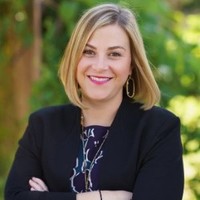
The Watkins campaign had paid Matousek’s firm about $6,500 this election cycle, with the most recent payment made in April.
Matousek’s clients this election cycle include Republican Congressmen Michael Conaway of Texas, Ron Estes of Kansas, Chip Roy of Texas and Sam Graves of Missouri. She also has worked for the Texas-based political action committee Conservative Opportunities for a New America.
Asked why she left the Watkins campaign for LaTurner’s, Matousek offered up some praise for LaTurner.
“Jake is an excellent candidate for the 2nd Congressional District,” she said in an email.
“Having worked with many members of Congress and other political candidates both in and out of Kansas, I know Jake has what it takes to win the seat,” Matousek wrote.
“I am pleased to be on the team helping him get elected to Congress, and am confident Jake will be a great representative of the 2nd District.”
The Watkins campaign did not respond to a request for comment.
Political insiders have been whispering in recent weeks that another fundraiser — Annie Harper — has left the Watkins campaign, perhaps as much for familial reasons as professional.
However, her departure could not be independently confirmed. Harper refused to answer questions about whether she was still working for Watkins. And the Watkins campaign did not respond to repeated inquiries.
Guarding against Medicaid fraud
The state health department has never had staff to investigate eligibility fraud in the multibillion dollar Medicaid program it administers.
A new audit out reveals that neither the Kansas Department of Health and Environment nor its predecessor — the Kansas Health Policy Authority — had the resources to investigate fraud in the $3.7 billion program.
“I see a real need to address that,” said Republican state Sen. Gene Suellentrop, chairman of the legislative committee that oversees the Medicaid program.
“In some way, shape or form, I think we’ve got to have at least some authority and some capacity for those folks to take some steps to not only identify but also address fraud issues,” Suellentrop said.
Three years ago, KDHE was cut off from investigators at the Department for Children and Families under a reorganization order issued by former Gov. Sam Brownback.
Before 2016, the state health department could request help investigating Medicaid eligibility fraud from 16 investigators in the fraud unit at the Department for Children and Families, which processed Medicaid applications.
But under the 2016 order, Medicaid eligibility responsibilities were moved out of DCF to KDHE without transferring any of the investigative staff.
Complaints of suspected eligibility fraud are now examined by the KanCare Clearinghouse, which processes Medicaid applications.
“The goal of the Clearinghouse’s investigation is not to determine whether a beneficiary’s behavior meets the legal definition of fraud; it is to determine whether the beneficiary is eligible for medical assistance,” the audit noted.
“Clearinghouse staff are not authorized — or trained — to conduct criminal investigations, and their job duties do not include performing field work such as surveillance, in-person interviews, etc.,” the audit said.
KDHE Secretary Lee Norman said the agency would look at the financial feasibility of adding staff who could investigate complaints of Medicaid eligibility fraud. There are 113 open positions in the agency’s health care finance division.
Pompeo roundup
U.S. Secretary of State Mike Pompeo is starting to dominate the 24-hour news cycle by himself. Whether it’s speculation about him running for the U.S. Senate in Kansas or the ongoing impeachment inquiry, Pompeo seems to be everywhere.
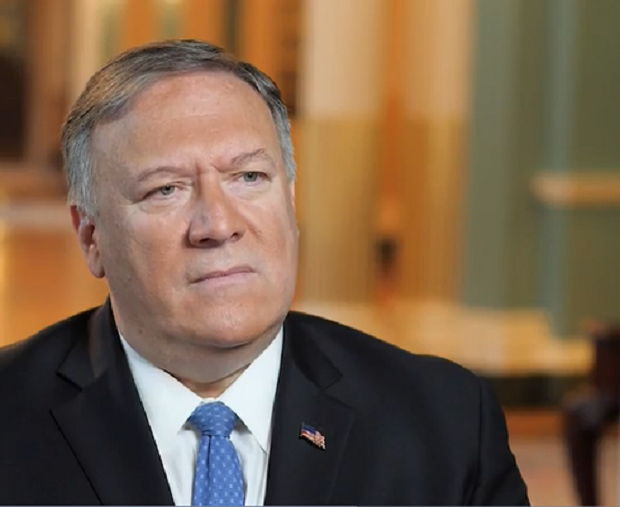
Here’s a look at what you might have missed, although it’s hard to believe anyone who reads this site is not aware of what’s transpired within the last 48 hours.
Let’s start with President Donald Trump seemed to give Pompeo the green light to run for the Senate with coverage from USA Today, New York Post, Reuters and The Associated Press.
And although this piece seems dated even though it’s only five days old, here’s Time’s story about Pompeo’s plans to run for the U.S. Senate.
And less than 24 hours after Trump went public about Pompeo, there were new reports about records showing that Pompeo had conversations with the president’s personal lawyer, Rudy Giuliani, just before the U.S. ambassador to Ukraine was dismissed.
While the records don’t show what was discussed, the group that sued for the documents said they reveal “a clear paper trail from Rudy Giuliani to the Oval Office to Secretary Pompeo to facilitate Giuliani’s smear campaign against a U.S. ambassador.” Here’s coverage from McClatchy, Politico, Fox News, The Hill newspaper, National Public Radio and NBC News.
Lastly on Sunday morning, there’s a Kansas City Star piece that looks at whether a whether the shine is wearing off Pompeo, who Republicans believe would be an antidote to a Kris Kobach candidacy.
Bistate fundraiser for Kelly
The Greater Kansas City Chamber of Commerce’s political action committee will hold a fundraiser for Kansas Gov. Laura Kelly on Dec. 5 at Union Station.
Don Hall, executive chairman of Hallmark Cards, and Gordon Lansford, president and chief executive of J.E. Dunn, sent out invites to the fundraiser last week.
The executives praised Kelly for working on a truce to the Kansas/Missouri economic development border war as well as her support for Medicaid expansion, public education and investing in infrastructure.

“Kansas Gov. Laura Kelly has shown responsible and courageous leadership throughout her first year in office,” said the letter from Hall and Lansford.
“Her bipartisan collaboration with Missouri Gov. Mike Parson to end the economic incentives border war and its wasteful spending of taxpayer dollars demonstrated her unwavering support for our bistate region and a commitment to move Greater Kansas City forward.”
A “host” sponsorship to the event is $2,000, a “sponsor” is $1,000, a “friend” is $500 and an individual is $250.
The fundraiser should be expected. The political action committee endorsed Kelly in last year’s governor’s race.
Schmidt takes on Kansas Supreme Court ruling
Attorney General Derek Schmidt will ask the U.S. Supreme Court to take up two Kansas Supreme Court decisions that struck down part of the state’s criminal threat statutes as unconstitutional.
Late last month, the state Supreme Court found that legislators overreached and violated the First Amendment when they passed a law making it illegal to recklessly threaten violence for the purpose of causing fear.
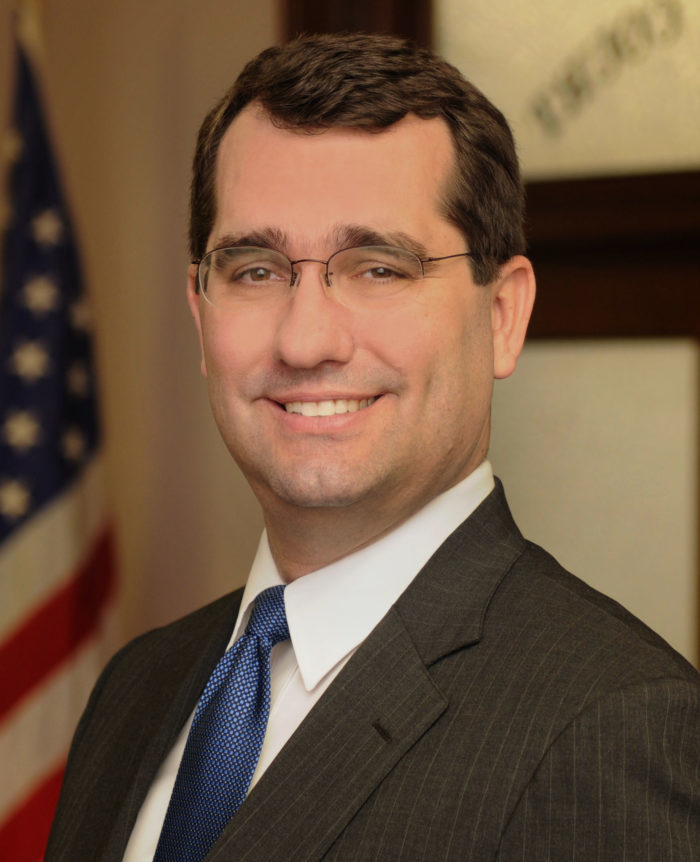
The state Supreme Court found that while there is legal precedent for limiting and punishing some speech — such as a “true threat” — the case at hand raised questions about what constitutes a “true threat.”
The court reversed two convictions under the law, one from Douglas County and another from Montgomery County. In these cases, the court found that it wasn’t enough to recklessly make a threat, but it had to be shown that there was an intent to cause fear.
“The United States Supreme Court has held that the government may regulate ‘true threats’ without infringing on rights protected by the First Amendment to the United States Constitution,” the state Supreme Court ruled.
“And that court has stated: ‘True threats’ encompass those statements where the speaker means to communicate a serious expression of an intent to commit an act of unlawful violence to a particular individual or group of individuals.”
The court found that the state law was overbroad because it could apply to any statement made without intent to cause fear of violence.
Schmidt said case law on the issue is far from settled.
“The U.S. Supreme Court has never squarely decided whether the First Amendment allows states to prohibit threats of violence uttered with reckless disregard for whether they cause fear or other specified harm to the people at whom they are directed,” Schmidt said.
“The lower courts are divided on that question, and the Kansas Supreme Court has now come down on the side that reckless threats of violence are protected speech,” he said. “So we are seeking clarity and certainty by asking the U.S. Supreme Court to review that decision.”
Schmidt defends concealed carry
Attorney General Derek Schmidt joined with other state attorneys general last week to ask the U.S. Supreme Court to reconsider lower-court rulings that allow states to bar people from carrying concealed weapons in public spaces.
Schmidt joined in legal briefs asking the high court to review rulings from two appeals courts upholding Illinois and Maryland laws prohibiting residents from carrying concealed firearms in public spaces.
At issue is whether the Second Amendment allows the government to prohibit law-abiding citizens from carrying handguns outside the home for self defense in any manner.
Kansas concealed-carry permits are recognized as valid by 39 other states. But in Illinois, Maryland and eight other states, Kansans with valid concealed-carry permits are prohibited from carrying a concealed firearm in public spaces.

In one case, Schmidt teamed up with 20 other state attorneys general to ask the U.S. Supreme Court to reconsider a ruling by the 4th U.S. Circuit Court of Appeals upholding the Maryland statute.
Maryland has enacted a “good cause” licensing system, which places the burden on residents to demonstrate a “good and substantial reason” to obtain a permit to carry a handgun outside the home, the attorney general said.
Kansas is different. It has a “shall issue” licensing system that generally grants concealed-carry licenses to law-abiding residents who demonstrate reasonable proficiency with a gun.
The attorney general argues that Maryland’s licensing requirements make it impossible for a state like Kansas to have its licenses recognized in Maryland. Here’s the cert petition in the Maryland case.
In the second case, Schmidt joined 18 other state attorneys general in asking the high court to reconsider a ruling by the 7th U.S. Circuit Court of Appeals upholding the Illinois statute.
Illinois only recognizes concealed-carry permits issued there. Out-of-state residents are allowed to apply for an Illinois permit only if the laws in their state of residence are considered “substantially similar.”
But Schmidt contends that the decision about whether another state’s law is “substantially similar” is made exclusively by the Illinois State Police with no means for an appeal. At this time, only four states — not including Kansas — qualify, Schmidt said. Here’s the cert petition in the Illinois case.
Pregnancy risk assessment report
The state health department last week released its second annual report that examines women’s health experiences at the time of their pregnancy.
The report, which received completed surveys from 976 mothers statewide, included some of these findings:
- Fourteen percent of mothers reported not receiving prenatal care as early as they wanted. Among the most frequently reported barriers were that their doctor or health plan wouldn’t start care when they wanted (36.1%), and that they could not get an appointment when they wanted (31.9%).
- About 22% of mothers smoked cigarettes in the three months before pregnancy. Among those who smoked and sought prenatal care, 40% reported that a health care worker discussing with them how to quit smoking.
- Substances used during pregnancy included over-the-counter pain relievers (78.7%), prescription pain relievers (6.4%) and marijuana (5.0%).
- About 17% reported that they didn’t get counseling for depression despite thinking they needed it after their baby was born.
Farm bankruptcies
The American Farm Bureau Federation reports that chapter 12 farm bankruptcies reached 580 for the year ending Sept. 30, an increase of 24% from the year before and the highest since 2011.
For the third quarter of this year, chapter 12 bankruptcies dropped to 160, a decline of 2% from the previous quarter.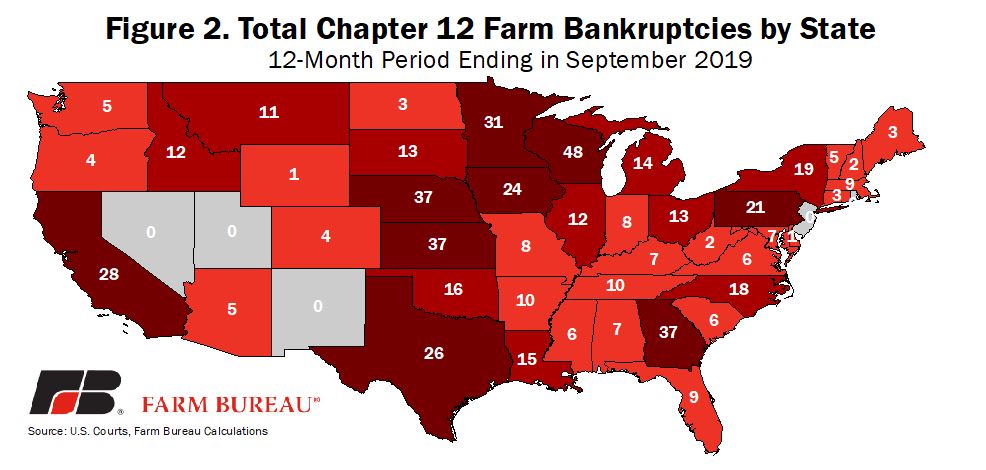
The Farm Bureau data shows that Wisconsin led the nation in farm bankruptcies with 48.
Kansas, Georgia and Nebraska had 37 farm bankruptcies.
They were followed by Minnesota with 31, California with 28, Texas with 26, Iowa with 24, and Pennsylvania with 21. Neighboring Missouri had eight, Oklahoma 16 and Colorado four.
Kansas, Iowa, Nebraska and six other states saw chapter 12 bankruptcy filings at or above 10-year highs.
Kelly’s crosstate budget tour
Gov. Laura Kelly is touring the state asking Kansans to offer ideas about what should be funded in the new budget ahead of the upcoming legislative session.
Kelly wants to give taxpayers an opportunity to discuss what they want to see in the upcoming legislative session and their priorities for the state budget.
“Our state needs a budget that reflects the interests and needs of Kansans,” Kelly said in a statement. “If we truly want to create a fair, balanced budget, we need to hear from Kansans themselves about what’s working, and what isn’t working in their communities.”
The tour resumes after the Thanksgiving holiday, with stops Dec. 3 in Emporia, Dec. 11 in Kansas City, Kan., and Dec. 17 in Wichita. A hearing is planned for Topeka, but no date has been set.
Lt. Gov. Lynn Rogers is holding similar listening sessions with stops planned on Dec. 16 in Iola, Fredonia, Sedan, Parsons and Baxter Springs and on Dec. 17 in Weir, Fort Scott and Osawatomie.
Douglas County judge nominees
The 7th Judicial District Nominating Commission has recommended three candidates to fill the vacancy created by the retirement of Chief Judge Peggy Carr Kittel. The 7th District covers Douglas County. Gov. Laura Kelly will have 60 days to choose from these nominees:
- Stacey Donovan of Lawrence, chief public defender, Shawnee County Public Defender’s Office
- Carl Folsom III of Lawrence, assistant federal public defender, U.S. District Court of Kansas, Topeka
- Shon Qualseth of Lawrence, assistant attorney general, Kansas Attorney General’s Office
Other news of note
- Capital Journal reports that new lottery machines aren’t producing the revenue they were expected although it may relate to the fact they were installed late.
- Kansas News Service offers up this dispatch about the increasing cost of mental health at state universities.
- KNS also has this interesting piece about a 2017 law passed in an effort to keep kids out of jail and whether it is sending them into foster care.
Here and there
MainStream Coalition announced last week that Roeland Park City Councilman Michael Poppa will become its new executive director starting Jan. 1. Poppa replaces Brandi Fisher, who had been with MainStream since 2011.
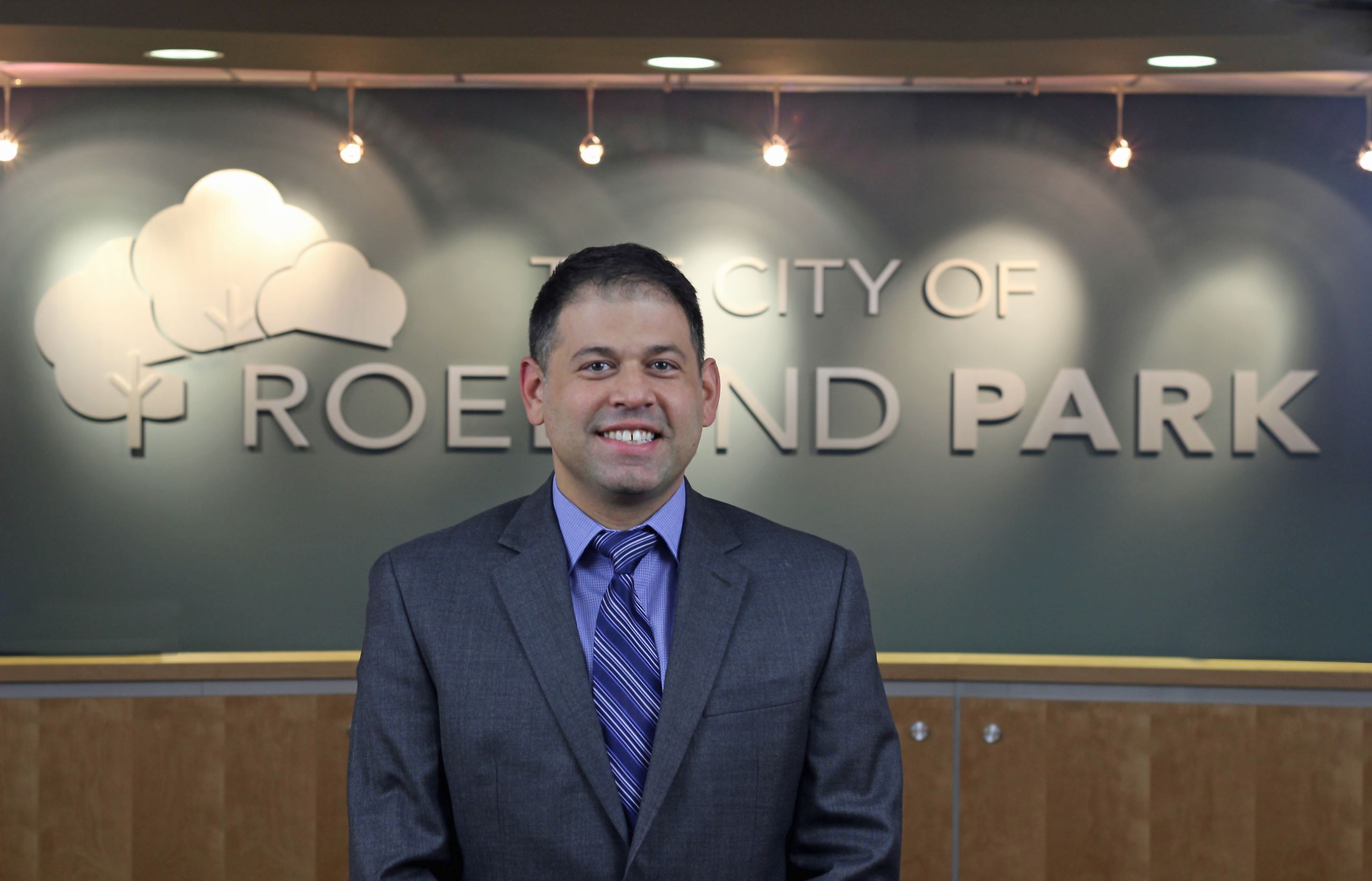
Poppa was elected to the Roeland Park City Council in April 2015, and his term ends at the end of 2019. He is currently the director of member engagement at the Northeast Johnson County Chamber of Commerce.
As the Kansas City metro chair of Equality Kansas, Poppa led efforts in 2014 to get Roeland Park to become the second city in Kansas to pass a law banning discrimination based on sexual orientation and gender identity.
“If you know Michael, you know we’ve chosen a dedicated champion of every Kansan, a tireless worker, and someone who understands how the political process informs our defense of the priorities we all share,” the organization posed on Facebook last week.
Poppa said he was looking forward to returning to advocacy work.
“I have been missing that part for the past few years,” he said in a statement. “On the city council, I serve as somebody’s voice, I represent my constituents. But in advocacy work, you get to give people the tools to have their own voice.”
***
There’s been a little reshuffling in legislative research now that J.G. Scott has moved up to oversee the department.
Scott announced last week that Amy Deckard is now take his old role as assistant director for fiscal affairs. Deckard has been with Kansas Legislative Research for 17 years, the last eight as assistant director for information management.
Deckard started with KLRD in 2002 as a fiscal analyst and before that worked in the state bank commissioner’s office, where she worked as a public service administrator and a management analyst.
She has a master’s in business administration from the University of Kansas and a bachelor’s in history from Pittsburg State.













